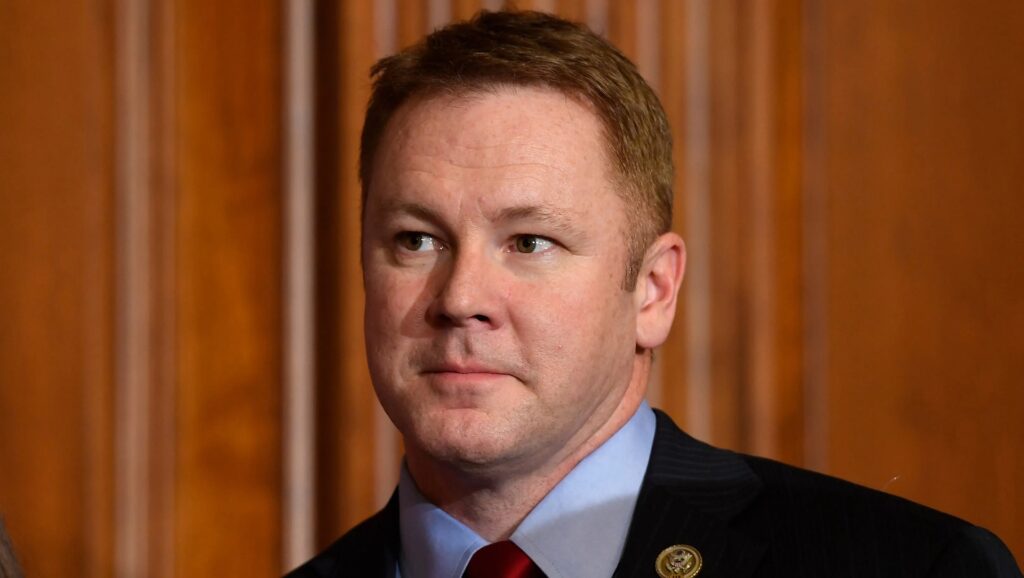In a recent Twitter post, US Rep. Warren Davidson expressed his surprise at the defensive stance some XRP token holders have taken regarding Ripple’s work on central bank digital currencies (CBDCs). Davidson, who has been critical of CBDCs, believes that these digital currencies pose an existential threat by corrupting money into a tool for coercion and control. He is currently working on legislation to criminalize CBDCs and their development, emphasizing his opposition to anyone, including Ripple, working on a CBDC. This article explores Davidson’s criticisms and the response from XRP holders.

US Rep. Warren Davidson Criticizes Ripple’s CBDC Work
US Representative Warren Davidson has recently expressed his criticism of Ripple’s work on Central Bank Digital Currencies (CBDCs). In a Twitter post, Davidson expressed his surprise at the hyper-defensiveness of some XRP holders regarding Ripple’s CBDC venture. This article will explore Davidson’s opposition to CBDCs, his efforts to criminalize CBDC development through legislation, and the comparison he made between CBDCs and the Death Star. Additionally, we will examine the poll conducted by Davidson to gauge XRP holders’ opinions on Ripple’s CBDC plans, as well as the responses from XRP and CBDC supporters. Finally, we will discuss Davidson’s previous actions against CBDCs and Representative Tom Emmer’s similar opposition to a digital dollar.
Davidson’s Twitter Post
In a recent Twitter post, Representative Warren Davidson expressed his surprise at the hyper-defensiveness displayed by some XRP holders in response to Ripple’s CBDC work. This suggests that some members of the XRP community were fiercely protective of Ripple’s venture into CBDCs. The tweet serves as a starting point for Davidson’s criticism of CBDCs and his intention to criminalize their development.
Ripple’s CBDC Plans
Ripple introduced its CBDC plans on May 18, leveraging the XRP ledger to enable central banks, governments, and financial institutions to issue their own digital currencies. Ripple’s platform allows for the management and customization of the entire lifecycle of a CBDC, including minting, distribution, redemption, and token burning. By providing these services, Ripple aims to empower government institutions in their adoption of CBDCs.
Davidson’s Opposition to CBDCs
Representative Warren Davidson views CBDCs as an existential threat, asserting that they corrupt money and transform it into a tool for coercion and control. In contrast, he advocates for the use of sound money as a stable store of value and an efficient means of exchange. Davidson’s opposition to CBDCs stems from his concern about the potential negative consequences they may have on the financial system and individual freedoms.

Legislation to Criminalize CBDC
In response to his opposition to CBDCs, Representative Davidson is actively working on legislation to criminalize the design, building, testing, development, and establishment of CBDCs. This legislation aims to prevent any individual or entity, including the government and private organizations like Ripple, from engaging in CBDC-related activities. Davidson’s intention is to halt the progress of CBDC development and protect the existing financial system.
Comparison to the Death Star
Davidson drew a comparison between CBDCs and the Death Star, depicting CBDCs as the financial equivalent of the planet-destroying weapon from the Star Wars franchise. He argues that CBDCs pose a serious threat to all digital assets and implies that they can potentially undermine the decentralization and freedom that cryptocurrencies like Bitcoin offer. This comparison emphasizes the magnitude of the perceived threat posed by CBDCs according to Davidson.
Poll on XRP Holders’ Opinion
To gauge the opinion of XRP holders regarding Ripple’s CBDC venture, Representative Warren Davidson conducted a poll on Twitter. The poll asked XRP holders whether they agreed, disagreed, or had no opinion on Ripple’s CBDC efforts. The results of the poll revealed that over 50% of respondents did not show significant interest in Ripple’s CBDC moves. Approximately 28% of respondents liked XRP but were not keen on CBDCs, while almost 19% expressed support for Ripple’s CBDC efforts.
Response from XRP and CBDC Supporters
Davidson’s criticism of Ripple’s CBDC work sparked outrage among XRP and CBDC supporters. Some defended the development of CBDCs, arguing that they are merely technological tools that can be beneficial for welfare and unemployment. Supporters also questioned why Davidson specifically targeted Ripple, suggesting that the US government is also exploring the creation and testing of a CBDC. These responses highlight the contentious nature of discussions surrounding CBDCs and the varying perspectives on their potential benefits and drawbacks.

Davidson’s Previous Actions Against CBDCs
Representative Warren Davidson has been actively opposing the development of CBDCs and urging the government to swiftly ban and criminalize any activity related to CBDCs. In March, Davidson wrote a letter to his colleagues, urging them to join him in fighting against CBDCs. His consistent efforts to thwart the progress of CBDCs reflect his staunch belief in the dangers they pose.
Tom Emmer’s Opposition to Digital Dollar
Representative Tom Emmer, a Republican, shares similar concerns about the development of a digital dollar. Emmer warns against state-controlled digital money, arguing that it could be used as a weapon to spy on US citizens. He has even introduced a bill that seeks to ban the Federal Reserve from issuing a CBDC in the United States. Emmer’s opposition aligns with Davidson’s broader concerns regarding CBDCs and their potential impact on individual privacy and financial sovereignty.
Conclusion
US Representative Warren Davidson’s criticism of Ripple’s CBDC work highlights the contentious nature of discussions surrounding CBDCs. Davidson’s opposition to CBDCs stems from his belief that they pose an existential threat and corrupt the financial system. His intention to criminalize CBDC development through legislation further underscores his concerns. The comparison he draws between CBDCs and the Death Star emphasizes the magnitude of the perceived threat. The responses from XRP and CBDC supporters indicate the diverse range of opinions on the topic. Davidson’s previous actions against CBDCs, along with Representative Tom Emmer’s similar opposition to a digital dollar, provide further context to the ongoing debate.















